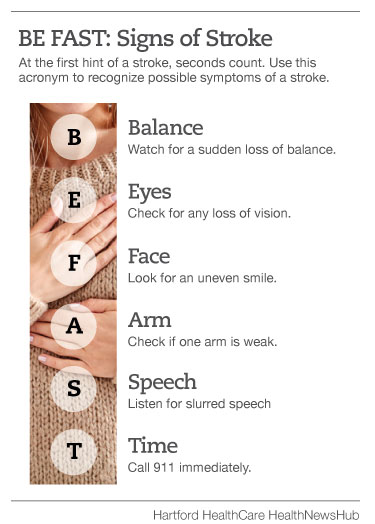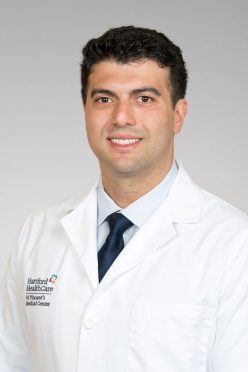A stroke happens when the blood supply to your brain is blocked or bursts, and the results can be devastating.
“In a major stroke, a large vessel is affected and per minute, you lose approximately two million neurons,” says Akli Zetchi, MD, a neuroendovascular surgeon at St. Vincent’s Medical Center.
Knowing the signs of a stroke – including the less common ones – can help you get treatment sooner and help save brain function.
Dr. Zetchi explains the tell-tale signs of a stroke you need to know, and how new state-of-the-art treatment can make a big difference.

Classic stroke symptoms you should know
Classic signs of a stroke include:
- Loss of balance
- Loss of vision
- Uneven smile
- Weakness in one arm
- Slurred speech
But there are less common stroke symptoms you should look for
There are some warning signs that can be more subtle than the drooping face or slurred speech most of us associate with stroke. They include:
- Sudden onset of severe headache
- Sudden, unexplained fatigue
- Loss of cognitive function or memory
> Related: 10 Foods That Can Prevent Clogged Arteries
When to seek care
If you or a loved one experiences stroke symptoms, seek emergency care immediately.
New stroke treatments like endovascular thrombectomies (EVT) allow doctors to use 3D imaging to find and remove stroke-causing clots.
“This state-of the-art technology, and the fact that we have a stroke team on call 24/7, gives us the best chance for a favorable outcome,” he says.
“I’ve had patients come in, not able to walk or talk, and leave the hospital a few days after receiving this treatment for a major stroke.”



